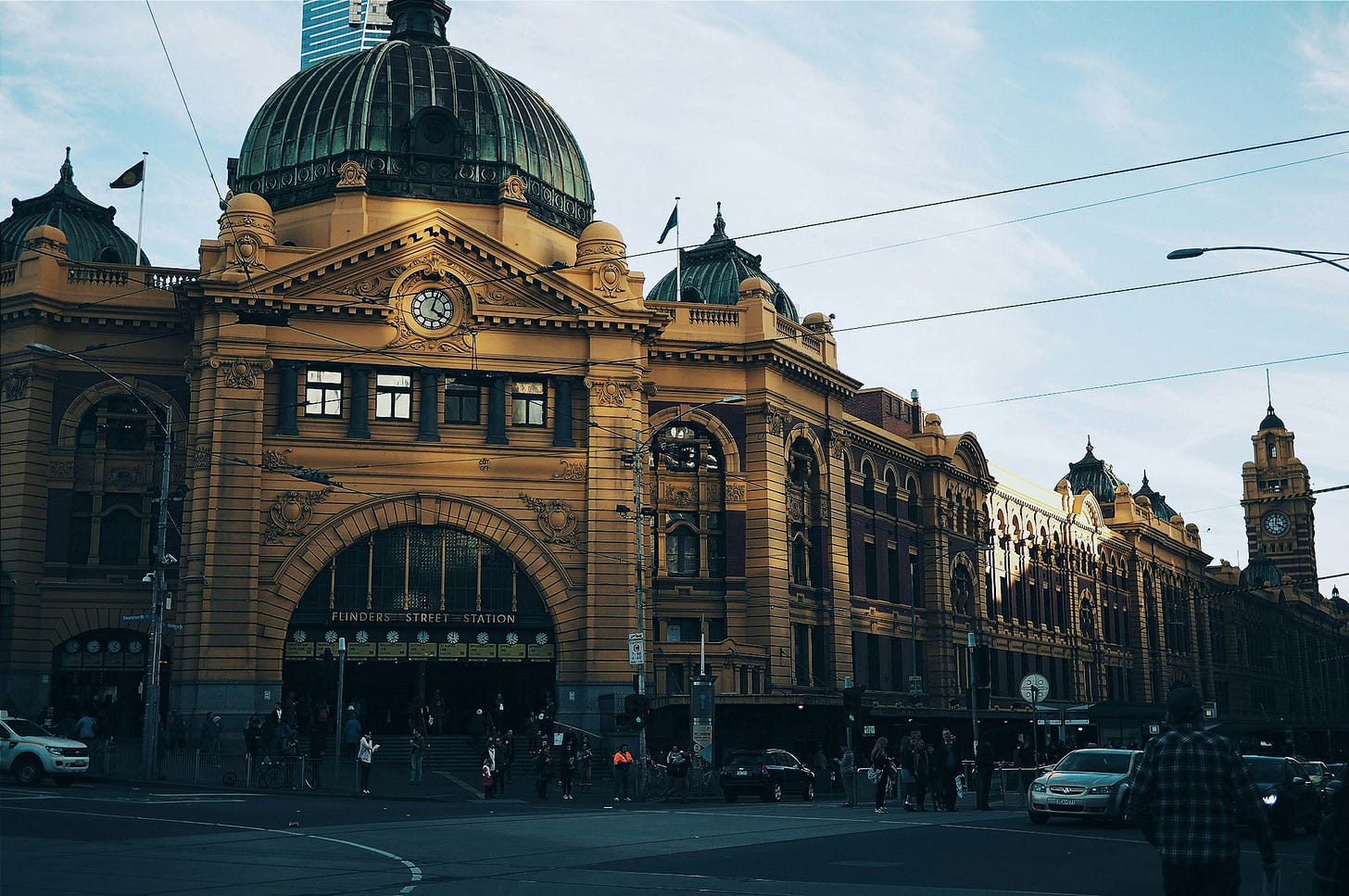Private Splendour; Public Squalor
As the sense of public squalor intensifies, promises of private splendour gain ever more purchase among a public feeling brutalised by government retreat from its core responsibilities.
So often in the focus groups, we hear people talk about their sense of growing public squalor.
They feel public disorder is escalating and feel unsafe from crime. They see pervasive homelessness, visibly mentally unwell people on the streets, and/or public drug-taking.
But their sense of public squalor goes beyond this.
They describe public health services at breaking point - or as someone put it to me, hospitals that look like they belong in Soviet Russia - staffed by nurses beyond exhaustion; crumbling infrastructure like roads with car-destroying potholes; insufficient or non-existent public transport; public schools with demountable classrooms in which children suffer freezing cold or burning heat in which teachers are too exhausted to teach… the list of squalor in areas on which we all depend is endless.
The public feels brutalised by government retreat from its core responsibilities - to keep people healthy and safe. Understandably, political volatility follows.
As the sense of public squalor intensifies, promises of private splendour gain ever more purchase.
At the moment, the right (and far-right) are far better at exploiting this than progressives.
In the US, Trump’s ‘genius’ was in understanding that such promises are only credible when someone is paying the price.
Trump’s promises hinged not only on destroying a malfunctioning bureaucracy, but on a zero-sum idea. Your success is dependent on someone else - usually a more vulnerable group - getting harmed. Immigrants, trans people, other ‘out-groups’ - along with the bureaucrats and other technocratic ‘elites’ - are the necessary sacrifices for your wealth.
While there are certainly parallels here in Australia, there are differences as well.
In the countless focus groups we’ve run this year, I haven’t once heard people speak cruelly of homeless people. They do not wish them rounded up or hurt in any way. The compassion is still there.
In this country, it’s still rare to hear calls for punitive measures against others. In a perfect world, the zero-sum game is not what they would choose. But for so many, this world is not just imperfect, it is squalid.
Even regarding youth crime, while some do demand harsher measures, others argue that the problems run deep and are due to an absent state failing to take care of our most vulnerable.
But here, as in America, collapse of trust in public institutions is only accelerating. This goes beyond hatred of corporations for profiteering or contempt for politicians, all of whom are seen as corrupt. It extends to a public service that people feel is operating for the benefit of a fortunate few at the expense of the many. This is the status quo so many want to see smashed - the centrist defence of which ultimately vanquished Kamala Harris.
In Australia, Robodebt was the most visible betrayal but in every area of our bureaucracy now, cost-cutting and the fetish for automation (that is - at its core - an instrument of dehumanisation) alienates and overwhelms the public.
My focus group participants talk so often about systems that should be there to help, becoming defined by a (deliberate?) complexity that limits access.
But amid the confusion and exhaustion, there remains an essential aspiration: to get ahead. To create a better life for themselves and their family. To live a more beautiful life.
This is a key aesthetic point many progressives miss. People don’t want to be poor. They don’t want to be supplicants whom some political parties claim to protect.
They want to be prosperous and have agency over their lives.
When progressives on social media tut-tut about people voting against their own economic interests, this is what they’re missing: sure - protect my rights as a renter, but find me pathways to be a homeowner while you’re at it!
So here is the task before progressives: to focus on the material. To present a vision for delivering private splendour through alleviation of public squalor. To arrest Australia’s precipitous drop in standard of living - the worst in the OECD.
Yes, the credibility of the progressive promise for private splendour also hinges on an ‘out-group’ copping it. But this out-group is predatory corporates and the bureaucracy when it does not serve the public.
The message is simple: in a wealthy country like Australia, you should be able to get ahead. You shouldn’t have to pay so much for the things you need. Price-gouging needs to have tangible and immediate consequences. Some of these things, like health, education, and childcare, you shouldn’t have to pay for at all. Your hard work should be rewarded: it shouldn’t just be a means of treading water and it shouldn’t be thwarted by unnecessary bureaucracy.
The areas in which you live should be beautiful. Public infrastructure and services should simply work.
The reason we don’t have these things is because we don’t have our tax base in order and hard-working Australians feel like they are paying over the odds while profitable big businesses aren’t paying their share. The result is there’s never enough money for the things we need or want.
Right-wing attempts here and around the world to frame migrants as the source of our ills can only work if progressives vacate the space and leave a vacuum because, like Harris before them, they’re too busy defending institutions that desperately need reform.
Progressives fail when credible hope is absent; when they play into the right’s hands; when they do not offer a vision that honours people’s aspiration for a beautiful life: public and private splendour both.


